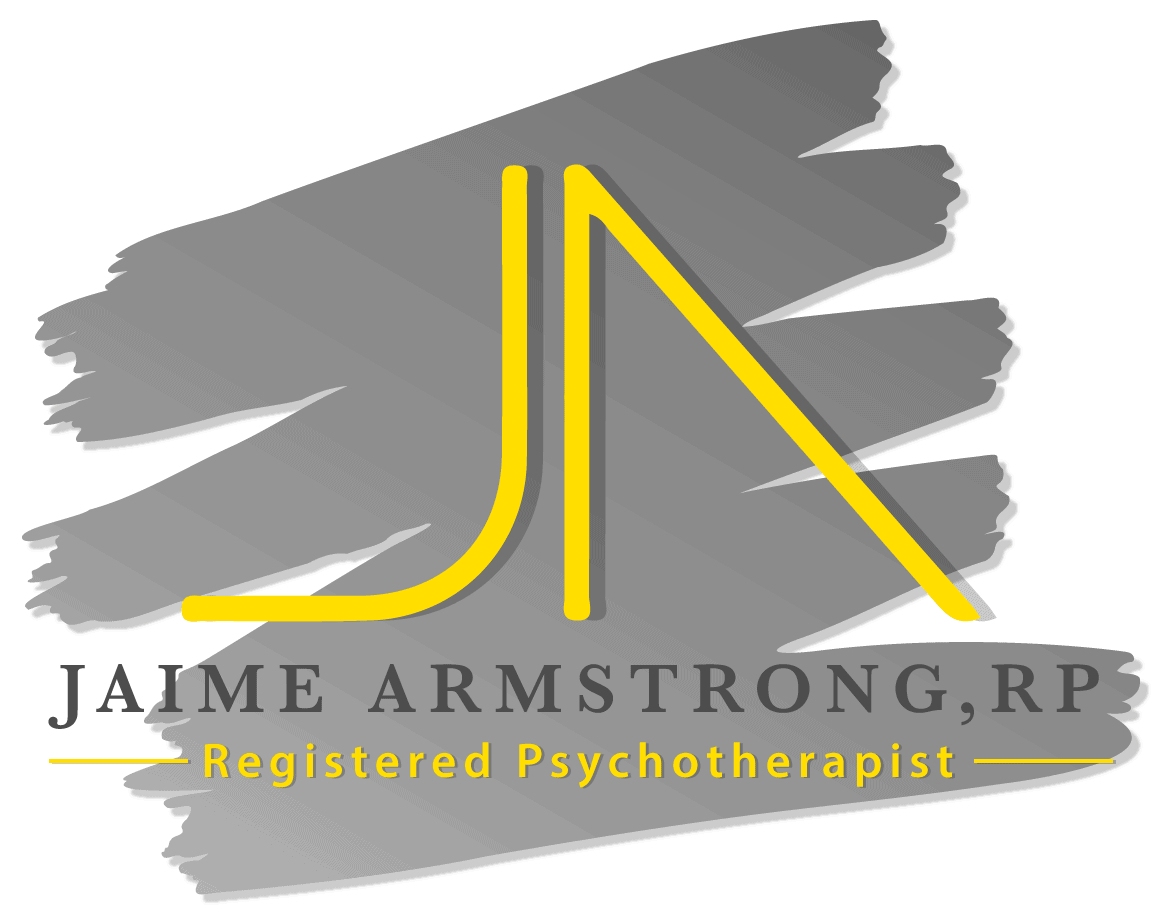There are a lot of misconceptions about therapy, and honestly it’s because our perception of therapy and views of mental health are out-dated. Mental health and therapy isn’t anything new. It’s been around for centuries! It’s an area, like others, that was very misunderstood and evolved based on trial and error rooted in spiritual beliefs. As science and technology developed, so did the understanding of mental health and therapy.

A Little History
The first recorded clinics and practices for mental health have been identified as established in the late 1800s. However, prior to this, there are other reports dating therapy back to as early as the 9th century. During this time mental health was thought to have been demonic with treatments, or rituals, performed to punish and battle supernatural causes of mental health. We also used to think drilling holes in people’s head was a great way of helping them. I’m certainly glad it’s not what we do today because it would be complicated to do online, and I’d pass out in the middle of it and that wouldn’t be good for anyone.
Science and research take time and by the time we learn something it may already be outdated. So we keep learning and stay flexible to do more when it becomes available. What happens though is not everyone stays updated. Not everyone keeps learning. And when this happens we get outdated experiences and thoughts of therapy that then gets shared with others. It becomes a wild game of telephone and impacts the thoughts of therapy which ultimately become barriers and stigma for it preventing people from experiencing a process that’s powerful and effective for change.
So, get your battle gear on!
We are busting through three misconceptions of therapy. There’s lots of them, but these three are quite outdated and based on ancient ways of thinking yet are current and ones that I hear about often. I’ve actually seen information about each of these misconceptions in different agencies and therapists’ informed consent forms. No wonder these misconceptions continue to be passed on! It’s actually being included as warning risks of therapy to people beginning therapy while covering agencies and practices’ liability for it. So I’m glad you’re here, because it’s time to get updated! It’s time to start a new game of telephone, one where we excitedly pass on updated and refreshed information. Information that will make a difference when thinking about therapy. Information that will actually make shift happen.
Updated View, Number One: It’s possible to feel better without feeling worse.
So the first, and I might say the biggest misconception about therapy, is this way of thinking that it has to get worse before it gets better. Imagine taking your car in for an oil change and the mechanic says, “well in order to do that we have to take everything apart and make it worse before we can make it better, and then we can change it.” Or imagine going to the doctor for a broken arm, and they say “we want you to know that before we can heal your broken arm we may have to break your leg too because it might get worse in other areas for you before it gets better.” WHAT?! Not a chance I’m sticking around for that. I imagine someone struggling with depression hears the same thing about therapy and thinks…worse?! I don’t want to imagine what’s worse than how I’ve been feeling! So I’ll leave it alone and deal with it because I definitely don’t want worse.
This way of thinking occurs because there used to be a time when we thought emotional responses were defences for other emotional responses that weren’t being felt and therapists thought in order to get better, people had to feel what they hadn’t felt before. “Anger? Oh, that’s a protection against something that has hurt you and in order to stop the anger you have to feel sad about what hurt you, and then you can heal.” This approach makes no sense, yet you can totally see how the thinking of it gets worse before it gets better came about. It’s a similar thought to an outdated view that when learning something new it requires effort and struggle before mastery. Effort and struggle are not requirements for learning. Do you remember your Kindergarten teacher hyping you up for some serious effort and struggle to count and learn your colours? No! They used play and humour, which the latest neuroscience research tells us, this is how our brain learns best! So no, it doesn’t have to get worse before it gets better. In fact, let’s spread the news that it gets better, and you can have fun and enjoy it while learning new things!

Updated View, Number Two: It’s possible to feel better immediately.
Another misconception I hear a lot about came up in a conversation I once had with a grief therapist. She shared with me that she tells all her clients that it’ll be two years before they start to feel better. I was shocked! And also because I have no tact, I looked at her and said “And they continue to see you AND pay you for that?” Thinking that therapy is this lifelong process is a total misconception! Honestly, if it takes a therapist two years to make things feel better or shift for you, I’d start looking for a new therapist. They might be outdated in their approach. Would you hire a contractor who tells you it’ll take two years to renovate your bathroom? Or send your kid to a school where they tell you it’ll take two years to teach them how to spell their name? No, you wouldn’t because you know better! In fact, you might start to question the level of skill of those people instead. I’m glad you know better about those things and I want you to know better about therapy too!
Long-term therapy is an outdated approach. Current research actually states the longer the therapy the less effective it becomes. I call those weekly venting or check in meetings for therapy a rent-a-friend model, which no longer is therapy. CBT and other founding models of therapy are outdated in that they aren’t aligned with the latest neuroscience research, which has provided information about the brain, and this understanding has led to the development of what’s being called transformative therapy. Transformative style therapies are short-term because they cause immediate and lasting change and work from a bottom up approach. Meaning, it’s targeting the subconscious parts of the brain that have been causing emotional responses. Prior approaches were known as top down, meaning it used your conscious mind to understand something. The reason why these took so long to see success and change is because you took something you consciously knew and tried to apply it to something that subconsciously was causing it. Have you ever gone through a haunted house, knowing it will be dark, with spooky noises, and people and actors will jump out of you, and jumped or been scared? Ya because you consciously know it but subconsciously responded to it. Long term therapy comes from the belief that repeatedly going through that house for months or years will result in success of not jumping or being scared when in there. Sure this may be true, but that’s only because you’ve gotten used to it from repeated exposure, not because you changed the subconscious. And let’s get real. Who actually wants to do that?! Transformative therapies change the subconscious, which is why therapy is successful in a short-term model. When you communicate with that part of the brain in a language it understands, change becomes immediate, and when you pinpoint the exact event to resolve, change becomes lasting. That’s why on average I only meet with people about 3 or 4 times. Let’s get in, get it done, and be on your way enjoying what has interest and benefit for you!
Updated View, Number Three: It’s possible to laugh, have fun, and experience change.
The last misconception about therapy is thinking that when attending, you sit and cry, sharing all your deepest, darkest secrets only to have a therapist ask you “how does it make you feel” and then as you start to share they say, “time’s up, let’s pick this up next week,” leaving you drained and exhausted with not much accomplished. Now I’ll be honest, this one is less a misconception and more of an outdated practice that continues to occur. So if you’re a therapist doing this, stop it. And if you’re attending therapy with a therapist who does this, stop it. You would never go to get your teeth cleaned and the dentist says, while your mouth is full of bubble gum toothpaste, “well that’s all we can get done today, see the reception at the front, and we’ll get you back in next week to finish this up.” See, I think we should think about therapy more like going to the dentist than anything. You don’t go every time you have to brush your teeth, you’re more than capable of doing that on your own. You go when something shows up that a dentist knows how to take care of, or you go every now and then for a check-up or cleaning. And each time you go, you leave with a fresh, clean smile.
It’s ridiculous and outdated to think about therapy as something that makes things worse, takes years to get better, or leaves you unfinished during the process.
What if the way we actually thought about therapy was more updated and aligned with what we know now, based on the latest neuroscience research, about new therapies that transform and heal rapidly using humour and fun. Let’s get excited about it! Therapy is necessary. We all need it, so let’s shift how we think about it. Let’s shift how we experience it. Find a therapist that matches that shift. Clear what’s been stuck, have some fun while doing it, and leave with a fresh smile on your face.



